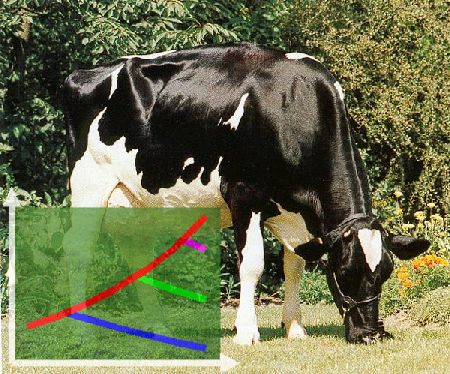In order to move away from the specific situation of a single research station and to take into account other animal and feed-specific aspects from different production conditions, cooperation was established with other research stations in Germany and Switzerland. They contributed the data from their feeding trials and, together with the Gumpenstein results, a further evaluation of the very extensive data material (70,000 data sets) is being undertaken. Since the data comes from very different production areas, the results apply to very different conditions. This affects the basic feed base (absolute grassland, field feed, silage maize), the concentrated feed (level, composition), the feeding technology (feeding frequency, TMR, freestall) and the animals (breeds, performance level, lactation stage).
Further information on project management can be found in the database for research and sustainable development (Dafne) -> Link







